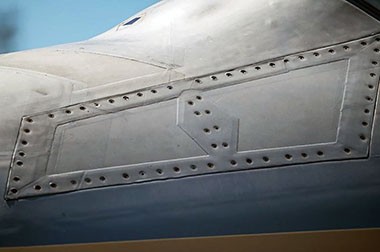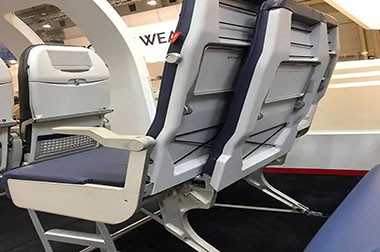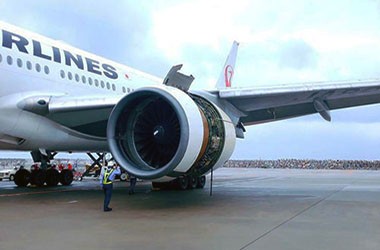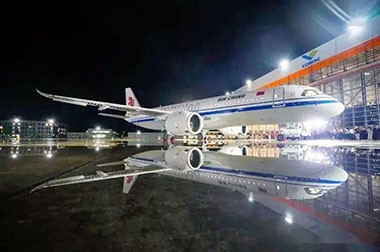What are aluminum alloys known for their high strength?
Common high-strength aluminum alloys such as 2024, 7075, and 7010 have excellent mechanical strength, toughness, and corrosion resistance.
High-strength aluminum alloys refer to those with exceptional mechanical strength, toughness, and corrosion resistance. They typically contain alloying elements such as copper, zinc, manganese, and magnesium, which significantly enhance their strength through heat treatment and processing. Common high-strength aluminum alloys like 2024, 7075, and 7010 are widely used in aerospace, automotive, and structural engineering fields due to their lightweight and high strength, meeting the stringent requirements of engineering applications.
Classification of High-Strength Aluminum Alloys
Aluminum-copper alloys (2xxx series) and aluminum-zinc alloys (7xxx series) are the two main classifications of high-strength aluminum alloys, each possessing unique characteristics and extensive applications.
- Aluminum-Copper Alloys (2xxx Series): Such as 2024 aluminum alloy, suitable for structural components subjected to high stress.
- Aluminum-Zinc Alloys (7xxx Series): Such as 7075 aluminum alloy, widely used in the aerospace sector.
Characteristics of High-Strength Aluminum Alloys
- 1. High Strength: Compared to ordinary aluminum alloys, high-strength aluminum alloys exhibit significantly improved tensile strength and yield strength, allowing them to bear greater loads.
- 2. Lightweight: The low density of aluminum alloys reduces overall weight while maintaining strength, making them suitable for fields like aerospace where weight is critically important.
- 3. Excellent Toughness: High-strength aluminum alloys maintain good toughness to a certain extent, enhancing the impact resistance of structures.
- 4. Corrosion Resistance: Although some alloys (like 2024) have less corrosion resistance compared to other aluminum alloys, their corrosion resistance can be significantly improved through appropriate surface treatments (like anodizing).
Typical High-Strength Alloys
High-Strength Aluminum Alloy 2024
- Composition: The main alloying element is copper, typically containing about 4.4% to 5.0% copper, along with small amounts of manganese, magnesium, silicon, and iron.
- Characteristics: 2024 aluminum alloy exhibits excellent strength and fatigue resistance, especially performing well in high-temperature environments. It has high tensile and yield strength, making it suitable for heavy-load structural components.
- Applications: Due to its good mechanical properties, 2024 aluminum alloy is commonly used in aircraft structural components, such as wings, fuselages, and landing gears. Additionally, it is used in racing cars and other high-performance sporting equipment.
- Weldability: The weldability of 2024 aluminum alloy is relatively poor, usually requiring rivets or other connecting methods.
High-Strength Aluminum Alloy 7075
- Composition: 7075 aluminum alloy primarily contains zinc, with a zinc content typically ranging from 5.1% to 6.1%, and also includes magnesium, copper, and small amounts of manganese, silicon, etc.
- Characteristics: 7075 aluminum alloy is renowned for its extremely high strength, with a tensile strength exceeding 570 MPa and very high yield strength. It has good toughness in the annealed state, but extremely high strength in the hardened state.
- Applications: 7075 aluminum alloy is commonly used in high-load structural components in the aerospace sector, such as aircraft wings, fuselage frames, and missile components. Furthermore, due to its strength and lightweight characteristics, it is widely used in high-end sporting equipment, such as bicycle frames and high-performance skis.
- Weldability: The weldability of 7075 aluminum alloy is poor, particularly in the hardened state, where it is prone to cracking after welding; thus, mechanical connections are typically used.
High-Strength Aluminum Alloy 7010
- Composition: 7010 aluminum alloy primarily contains zinc, with a zinc content typically ranging from 5.5% to 6.5%, along with magnesium, copper, manganese, and other elements.
- Characteristics: 7010 aluminum alloy has good strength and toughness, making it particularly suitable for structural components subjected to dynamic loads. Its weldability is relatively good, allowing connections via welding processes.
- Applications: 7010 aluminum alloy is mainly used in aerospace structural components, such as aircraft fuselages and wing beams. Additionally, it is also utilized in military equipment and sporting goods, especially where high strength and corrosion resistance are required.
- Weldability: The weldability of 7010 aluminum alloy is superior to that of 2024 and 7075 aluminum alloys, making it suitable for manufacturing and assembly using welding processes.








